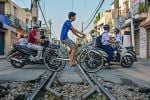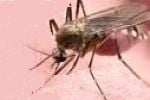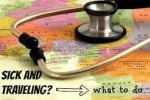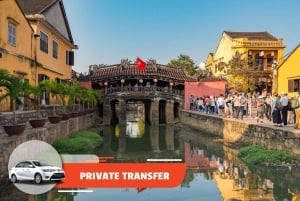Health and Safety
Whether for a long stay or a quick visit, you must read the following health and safety information when traveling to Vietnam.
Travel Health Insurance
Travel health insurance is always a good idea. Also, over the counter medicines and small-level treatment in Vietnam is cheaper than in developed countries, but it is better to be safe than sorry. Accidents can happen.
Vaccinations: The yellow fever vaccination is the only one required by international regulations; proof of vaccination is only required if you have visited a country within the yellow fever zone within 6 days of coming to Vietnam. Other vaccinations recommended by the World Health Organization (WHO) for travellers to Southeast Asia include: Hepatitis A and B, Adult diphtheria and tetanus, Measles, mumps and rubella, Typhoid, Varicella and, for long-term travellers: Japanese B encephalitis, Meningitis, Rabies and Tuberculosis.
Tap Water
The tap water in Ho Chi Minh City isn’t safe to drink. In small amounts, such as a single cup of tap water, will probably not make you sick. Regardless, the locals don’t drink it so you shouldn’t either.
It’s not safe to drink due to bacterium and organisms, which means boiling the water makes it okay for consumption. Using it to boil noodles or rice, or make coffee or tea is usually just fine.
For this reason most food places give bottled water rather than courtesy water, but almost anywhere you go you can get free lotus iced tea, which had been boiled or made from clean water. Just ask for “cha da” (trà đá) which is literally “tea ice.”
If you stay in an apartment or share home, there are businesses that can deliver large jugs of clean filtered water at cheap prices. And factory made ice from filtered water is delivered to most restaurants (you’ll see the guys trucking it around town in bags).
Malaria
In case you didn’t know, malaria exists in almost any tropical area… and Vietnam is no exception. This disease is contracted via mosquito bite and it can be life threatening. But before you get concerned, know that it is extremely unlikely for you to contract malaria unless you travel out into the countryside or jungle. And the prognosis is good—fewer than 0.6% of expected cases resulted in death in 2010. And most of those poor souls were children in Africa. There is no reason to panic if you think you’ve got it.
You can prepare your body to fight malaria by taking certain antimalarial tablets. You’ll want to talk to your doctor about this, of course. Prevention with these “horse-pills” (… just kidding!) usually needs to start 3 weeks in advance to exposure. You can also use mosquito-fighting techniques of the Shaolin monks, such as mosquito nets and insect repellants.
The symptoms don’t set on right away—it takes at least 8 days and usually more. Muscle tightness, headache, high fever… these are the kinds of symptoms to expect. If you think it’s possible that you’ve got malarial symptoms, head to a hospital. They can diagnose it with a blood test and fix you up with medication.
Other Infectious Illness
Any developing country comes with a heaping side of “adventure-pants” if you know what I mean. Yes, diarrhea comes with the territory. You’re exposing your digestive system to new bacteria and more of them. Street food, restaurant food, produce… all of these are subject to cause traveler’s diarrhea. But no reason to get excited, it’s harmless and goes away with a bit of time.
You may, however, catch a more intense bout of bacterial or viral infection from coming into contact with the unsanitary. Severe stomach cramps, diarrhea, vomiting, fever- to the point that you start to become dehydrated. This kind of illness requires you to fight the symptoms and let your body win the battle on its own. And this includes dengue fever.
If there is no fever, take Imodium to help with diarrhea. If you do have fever, there are other products like Pepto-Bismol and Carbogast available to help. There are pharmacies located on many streets in the cities of Vietnam to help you.
The most serious side-effect of this is dehydration, which can cause dizziness, confusion, paleness. Severe dehydration is actually rather agonizing. Of course you’ll want the vomiting to stop first. Then start drinking sports drinks, ion replenishment drinks (check out Pocari Sweat in convenience stores), and even water with a little salt and sugar in it if you have nothing else. Water alone won’t do the trick. If you can’t keep fluids down for 12 hours, or you are still dehydrated, then go to a hospital. They can give you a fluid drip that’ll get you hydrated.
To fight the infection off, Vitamin C is very helpful. 1000 mg orally 4 or 5 times a day until symptoms go away is my personal method. This will help your body get rid of the infection.
As always… if you are dehydrated or really feel awful for more than 12 hours, go to a hospital. Use your best judgment.
Violent Crime
Despite being in a poor and developing country, Ho Chi Minh City has very little violent crime. Homicides and muggings are extremely rare, and they are even rarer in the expat/tourist community. Still… it’s wise to stay cautious when it’s very late. Some areas become inhabited with young “gangs” and the potential for altercation is there. Steer clear of dark places that you are unfamiliar with if you aren’t in a group.
Accidents
Accidents can happen anywhere. The developing world is a place where you need to be ready if they do happen call these numbers . And be sure to have your consulate information handy too.
The most common source of danger in Ho Chi Minh is the traffic. There are thousands of motorbikes wheeling all over the place. Whether you’re walking or riding, keep well aware of what’s going on around you. Pay attention to every time you walk around a truck or bus or anything, as that’s when most people get nailed.
It’s true that the traffic here behaves like an organism. The motorbikes generally aren’t going that fast, and the drivers usually pay attention and move around things that come along. And they are quick to hit the brakes. So you’ll find that crossing the street requires slowly and predictably walking into some traffic (sometimes with a hand in the air). But don’t let your guard down. STAY AWARE!

















